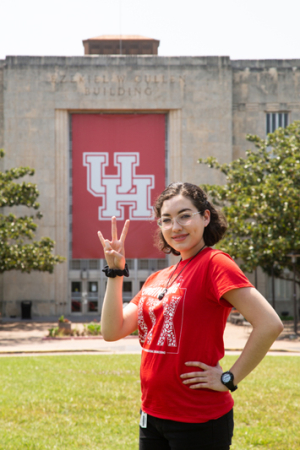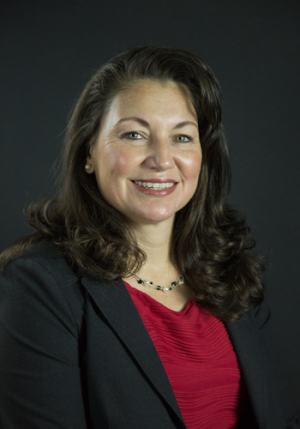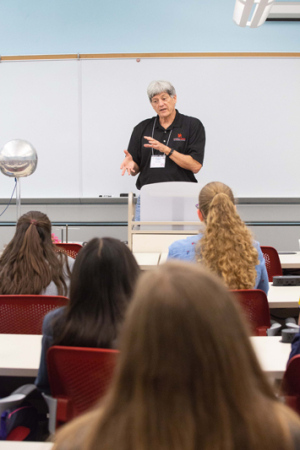National Science Foundation grant provides scholarships and support to academically-talented underserved students
The National Science Foundation awarded a $999,029 grant to a team of University of Houston researchers for a new program aimed at studying the impact of scholarships, engagement and other support on low-income students and their academic success.
The program, titled “Engineering/NSM Student Success Program Serving Low-Income Academically Talented Students,” is a collaboration of two existing UH STEM programs — the Program for Mastery in Engineering Studies (PROMES) in the Cullen College of Engineering and the Scholar Enrichment Program (SEP) in the College of Natural Sciences and Mathematics (NSM). It is funded through the NSF’s S-STEM program.
“Low income students often don’t have the time nor can they often afford to be engaged on campus,” Diana de la Rosa-Pohl, instructional assistant professor at the UH Cullen College of Engineering. “We want to give them a little bit of a breathing room and support to get them more engaged on campus because we know that’s really what moves the needle on student success.”
De la Rosa-Pohl is familiar with the challenges faced by low income students. As a high school student, she worked at a restaurant in South Padre Island, almost an hour’s drive from her home in Brownsville. She juggled the long commutes, school responsibilities and work on a regular basis.
She went on to earn two master’s degrees – in physics and electrical engineering – and a doctorate in education. Now she wants to help other students in their journey.
The project will fund 80 two-year scholarships over five years for students pursuing undergraduate degrees in the Cullen College of Engineering and NSM.
“This is going to give a lot of money to a large number of deserving students. About 64 percent of the grant money will go straight to student scholarships,” said Stuart Long, Cullen College professor of electrical and computer engineering and associate dean of the Honors College and Undergraduate Research at the University of Houston.
But the program goes beyond providing financial help, emphasizing long-term support through college and beyond.
“We’re trying to do something different with the scholarship program,” de la Rosa-Pohl said. “Instead of focusing on the financial side of it, we wanted to focus on the engagement side of it and use the financial piece as an incentive to attract the students.”
There is growing evidence indicating that students from low-income backgrounds have lower graduation rates and are less likely to find jobs in their respective fields compared to their peers from higher-income families.
“We find that a lot of low income students are missing social capital in their backgrounds,” de la Rosa-Pohl said. “Social capital is comprised of a lot of things, it’s those things you expect the wealthier students to have – more connections, more emphasis on education in their social circles, their parents are probably better educated and have higher degrees, and also higher economic status. Just many things that give [the students] that support structure when they get to college.”
“We want to fill those gaps,” she added.
The research aspect of the project aims to show that increasing access to such factors will help students be more successful.
The principal investigators on the project are de la Rosa-Pohl and Long, both with the electrical and computer engineering (ECE) department at the Cullen College. Andrew Hamilton, associate dean for student success in the College of Natural Sciences and Mathematics, and Jerrod Henderson, PROMES director, are the non-ECE investigators on this project.
How Will the Program Work?
The collaboration between the two colleges allows them to pool resources and best practices.
“We’re bringing the best parts of two programs together that have already shown a lot of successes with other UH student success programs,” de la Rosa-Pohl said. “We had some great pieces – like the First Year Experience in PROMES and the Summer Bridge aspect of SEP – that we’re bringing together. Instead of reinventing the wheel, we just joined forces.”
The Summer Bridge program will give accepted students an early introduction to college life, easing the transition from high school to higher education. “Our participants will come to UH the summer before they start their regular classes to attend this bridge program,” Long said.
Lisette Montemayor, a high school graduate from Pasadena, is part of the first cohort and the Class of 2022. The daughter of an electrician, she’s interested in electrical engineering. If she hadn’t been accepted to the program, she’d be working during the summer to help pay for college.
“Instead of getting a summer job at some place in Pasadena doing whatever I could get, I can actually do something meaningful and productive that’s furthering my career and my academics,” she said.
Her time on the UH campus is spent learning about and registering for future classes and identifying research topics. She’s also met some of her classmates and professors.
“It’s nice because I get to know these people from S-STEM and SEP so I kind of have connections already before the school year starts,” Montemayor said. “I’m really glad I was chosen to be part of the first S-STEM cohort.”
The First Year Experience will allow accepted freshmen to engage in hands-on, project-based learning designed to help students learn and work in teams. The second year is going to focus on leadership development and community engagement through workshops and social activities. S-STEM will emphasize networking, team building and professional development.
The scholarships will help pay for the first two years, and after that students will be encouraged to apply for co-operative education opportunities, internships and research positions to help pay for the third and fourth years.
“That’s part of what we do. We’re getting them ready and involved in the career building by helping them with résumés, helping them with social skills, encouraging them to attend job fairs,” de la Rosa-Pohl said. “We help them get prepared so they can start earning their own money.”
By financing only the first two years through scholarship, the grant funds will be stretched to impact more students.
Aiming High
The UH researchers hope to use the S-STEM program in many different ways to change lives.
Long considers it a tool for both recruitment and retention. “It gives students another reason to come to UH, and choose to major in engineering, natural sciences and mathematics,” he said. “It’ll also give them the support to continue and have them graduate. I’m looking forward to graduating 80 additional students in engineering at the end of five years.”
Then there is the research component.
“By the end of five years, we hope to be able to prove – with data – that we have increased the students’ level of engagement, not in just one measure but multiple measures and on different levels,” de la Rosa-Pohl said. “Engagement with their classes, engagement in research and engagement with the campus community.”
However, she’s excited about the more immediate goals as well.
“I can’t wait to write those first checks for the scholarships. I just love the idea of possibly changing somebody’s family tree, their trajectory. I don’t think money or socio-economic status should be the reason why somebody doesn’t do this degree. If they have a passion for it, we want to give them every means to do it, we want to remove every obstacle that we can so they can be successful.
The grant award started April 1 and ends March 31, 2023.


